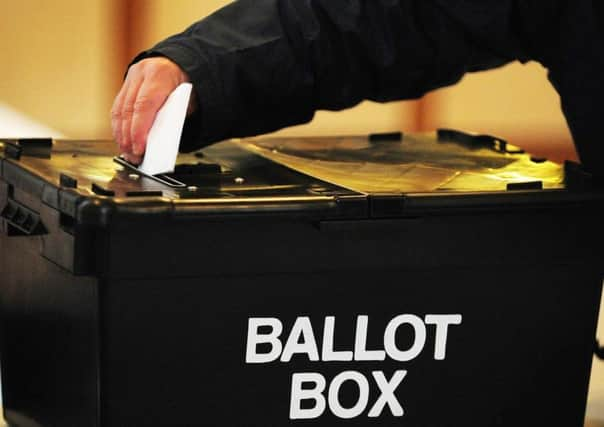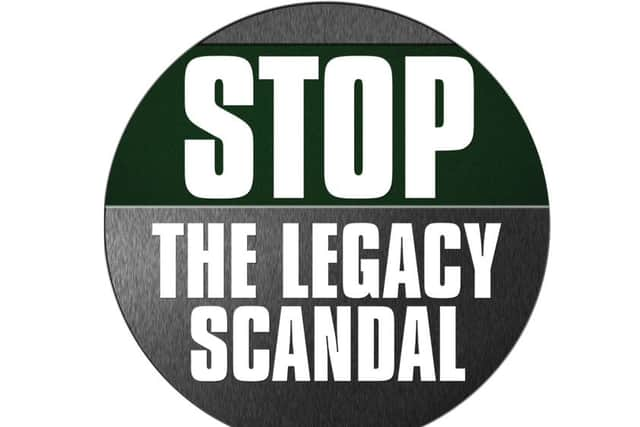Legacy Scandal: '˜IRA has used the grace it was afforded by victims to accuse the state of a dirty war,' says Owen Polley


The News Letter’s important series of legacy essays has featured powerful contributions from victims, who have explained that the failure to deal with Northern Ireland’s past properly has had a devastating impact on their lives.
Former members of the security forces, lawyers and academics have examined how the government’s consultation proposals — based on structures agreed by the DUP and Sinn Fein in the Stormont House Agreement — threaten to entrench an imbalance that directs a disproportionate number of investigations at relatively few deaths caused by the police and army, rather than the overwhelming majority of murders committed by terrorists.
Advertisement
Hide AdAdvertisement
Hide AdThe series has shown clearly that the legacy process is at risk of degenerating into a witch-hunt against the very forces of law and order that, for the most part, protected lives and property and prevented Northern Ireland from slipping into outright civil war.


While this scandal has arisen for many reasons, at its root is the success of a broader campaign by the republican movement and its apologists to portray IRA terror as a justified response to state violence.
The Northern Ireland ‘peace process’ has required almost no contrition or self-examination from the most prolific perpetrators of murder, the Provisional IRA, or its supporters. Sinn Fein continues to commemorate publicly and without shame paramilitaries who were involved in some of the bloodiest incidents of the Troubles.
Victims of republican terror are confronted regularly by celebrations of IRA crimes and, if they object too strenuously, they’re accused of denying republicans their right to commemorate, a hostile obsession with the republican movement or opposing the peace process.
Advertisement
Hide AdAdvertisement
Hide AdThe council owned children’s play-park in Newry, named after Raymond McCreesh, who was caught with a gun used in the Kingsmills massacre, is just one particularly vile example.


When Michelle O’Neill, or other senior Sinn Fein politicians, speak at events to honour former bombers and murderers, outside a few formulaic press releases from unionist parties, there is scarcely even any outcry.
Understandably, many people in Northern Ireland are keen to forget or ‘move on’ from talking about the Troubles, because they want to concentrate on shaping the province’s future.
The difficulty is that this indifference can give groups with a remorseless focus on distorting the past more freedom to promote their version of history.
Advertisement
Hide AdAdvertisement
Hide AdLately, this tendency has become tangled up with a new form of identity politics that encourages a sense of victimhood and grievance among minority groups.
Sinn Fein has exploited this fashion by portraying the IRA’s ‘struggle’ as part of an ongoing campaign for “rights” and “equality”, apparently withheld by unionists and the British government.
At times, it seems as if they believe quite sincerely that the sectarian fanatics who prowled border areas, butchering Protestant farmers and off-duty police officers, were fighting to secure gender-neutral toilets and same-sex marriage.
Yet the underlying cynicism of the strategy was exposed by Gerry Adams, one of its leading exponents, back in 2014, when he explained its real purpose in direct language to a Sinn Fein meeting in County Fermanagh.
Advertisement
Hide AdAdvertisement
Hide AdThe point of talking about concepts like ‘equality’, he told his supporters, “is actually to break these bastards (unionists) ….. that’s the Trojan horse of the entire republican strategy”.
That there hasn’t been a serious push-back against republicans’ attempts to distort history is probably because of the common assumption that the ‘peace process’ is too fragile to withstand a legacy process that examines the IRA’s role properly.
The 1998 settlement has been nudged along by pardons and ‘comfort letters’ to fugitive terrorists.
If the law were applied thoroughly, it would most likely involve prosecuting senior members of Sinn Fein.
Advertisement
Hide AdAdvertisement
Hide AdThat omission might be a worthwhile sacrifice, if the worst perpetrators of violence were prepared to leave the past alone and show some humility, rather than constantly poking and prodding this rawest of sores.
Instead, they’ve used the grace they’ve been afforded by their victims to relentlessly depict the security forces as the chief orchestrators of a ‘dirty war’, where atrocities are generally attributed to the provocation of double-agents, rather than the paramilitary organisations that planned and carried them out.
The word ‘collusion’ is used to imply that any form of counter-terrorism is a sinister British plot.
This account of the Troubles, which defies any serious examination of historical evidence, is propagated fiercely by the provisional republican movement and its followers and seems to have gained some acceptance, particularly among young people, who can’t remember the events it tries to explain.
Advertisement
Hide AdAdvertisement
Hide AdMore worrying still, a substantial part of the nationalist electorate has given it their tacit endorsement, by voting to make Sinn Fein the largest nationalist party.
Due to the success of this narrative, we can’t be confident that, in the longer term, our society will absorb even the most basic lessons from our troubled past.
• Owen Polley is a writer and commentator